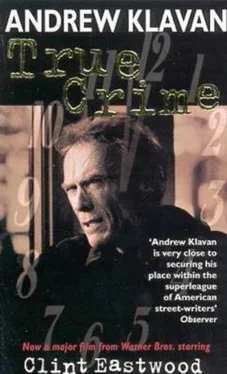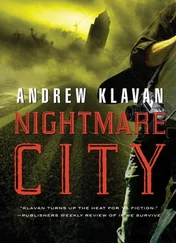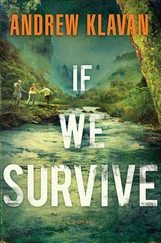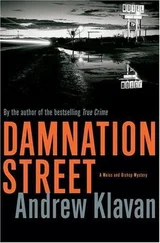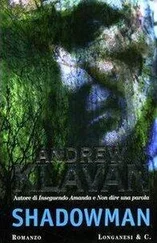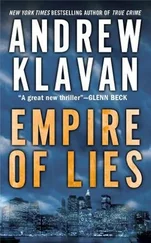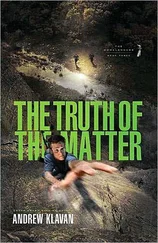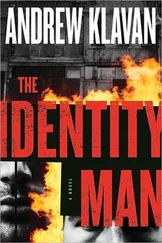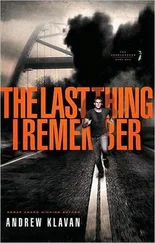Andrew Klavan - True Crime
Здесь есть возможность читать онлайн «Andrew Klavan - True Crime» весь текст электронной книги совершенно бесплатно (целиком полную версию без сокращений). В некоторых случаях можно слушать аудио, скачать через торрент в формате fb2 и присутствует краткое содержание. Жанр: Криминальный детектив, на английском языке. Описание произведения, (предисловие) а так же отзывы посетителей доступны на портале библиотеки ЛибКат.
- Название:True Crime
- Автор:
- Жанр:
- Год:неизвестен
- ISBN:нет данных
- Рейтинг книги:4 / 5. Голосов: 1
-
Избранное:Добавить в избранное
- Отзывы:
-
Ваша оценка:
- 80
- 1
- 2
- 3
- 4
- 5
True Crime: краткое содержание, описание и аннотация
Предлагаем к чтению аннотацию, описание, краткое содержание или предисловие (зависит от того, что написал сам автор книги «True Crime»). Если вы не нашли необходимую информацию о книге — напишите в комментариях, мы постараемся отыскать её.
True Crime — читать онлайн бесплатно полную книгу (весь текст) целиком
Ниже представлен текст книги, разбитый по страницам. Система сохранения места последней прочитанной страницы, позволяет с удобством читать онлайн бесплатно книгу «True Crime», без необходимости каждый раз заново искать на чём Вы остановились. Поставьте закладку, и сможете в любой момент перейти на страницу, на которой закончили чтение.
Интервал:
Закладка:
The minister was a handsome man with a fine, sculpted head on a tall, broad, portly frame. He rarely smiled himself and had developed, over the years, that appearance of lowering dignity that went down well among the faithful of his community. But the dignity was real too, and inward; Bonnie knew it, no one more. And yet today, his face, even just the color of his face-because he was black, and very dark-made Bonnie feel distant from him, estranged and lonely; even lonelier still. Who was this man, this black man? she wondered wearily. What had he to do with her? Why couldn’t all these strangers just leave her in peace?
She turned away from him-or rather, her stare swung back to Gail and went empty again. This feeling toward Flowers was wrong, she told herself in a dim, dull voice. It was unworthy of her. It was ungrateful. He and his congregation had cared for her these last years. They had taken her in with a true Christian spirit. When the people of her old church had condemned Frank and rejected her, when she had lost the Dogtown house and been forced to move to the very border of the northern slums, Flowers had brought her into his church, even knowing who she was and who her husband was. When she had developed the cancer in her breast, Flowers’s wife Lillian had taken care of Gail. She had sat with Bonnie before the operation, and the minister himself had consulted with her doctors. He had gotten her bookkeeping work-under her maiden name so she wouldn’t lose the jobs, and off the books so she wouldn’t lose her welfare. And he had gone to the prison and become Frank’s minister too. And Frank loved him. Bonnie knew all that.
But today he looked strange to her. Black and strange. And she hadn’t the strength to overcome the feeling; she only wished, wearily, it would go away. It was the same, sometimes, when she sat in his church on a Sunday. Sat there, white, in a pew toward the rear. And the minister churned the soul-bed of the congregation with a voice like measured thunder, with rhythmic, passionate invocations, drawing groans and cries from the upturned faces. Hallelujah. Yes, Lord. Hallelujah. Amen . All those brown faces, with accents that were not like hers, from lips that were not like hers. Everything was so strange and she was so very distant from it, so very far away. How she ached sometimes to be among her own, and the things she knew. How she longed for the old days, and the way her life had been with Frank.
The minister stepped over the threshold and closed the door softly behind him. Gail went on drawing, pressing down hard, clutching the crayon in her fist. She didn’t look up until Flowers spoke.
“You ready?” he said. “We better go.” Even speaking normally, he had a grumbling bass.
Gail raised her face quickly-a small, pinched face with large, deep brown eyes. “Is it time to go see Daddy?” she asked, excited.
Flowers tried to smile at her, but his dark brown features only flinched uncomfortably. “It sure is, sweetheart.”
“Yes!” said Gail. She jumped to her feet. “I’m drawing a picture for him of green pastures. See?”
She held the newsprint up by one corner so that it curled and dangled askew. Flowers could only see a diagonal swath of the picture, but he could tell it was a collection of her usual, painfully inept scribbles. Harsh splotches of muddy color, lollipop trees, lopped cottages, people with big shoulders but no arms. Gail loved to draw-she was always drawing. But Flowers had seen five-year-olds who could do better-he had even seen some modern artists who could do better-and it hurt him inside when she showed her work to him.
He gave another uncomfortable smile. “That’s fine, Gail. Your daddy’s gonna love that.” He turned back to Bonnie as soon as he felt he could. The false heartiness dropped from his voice. “We should get started, Bonnie.”
Bonnie was already standing. Reaching for her purse on the bureau. “Get your things together, Gail,” she said, over her shoulder. She spoke in a high, hoarse Show-me twang that cracked musically.
She flicked the clasp of the purse open and brought out her lipstick. Leaned toward the bureau mirror in the pale light from a nearby lamp. Her reflection pained her. Her face, she thought, had lost its sweetness; had been cheated of its sweetness. She had never, she thought, been pretty. But her small pert features were so lined now, the cheeks so dragged downward, that she could have been fifty instead of thirty-three. She didn’t look at the image too closely and drew her lips in with automatic strokes.
She dropped the lipstick back into her purse and snapped the purse shut. In the mirror, she saw her daughter kneeling on the floor again. Not moving. Bonnie turned around.
“Come on now, Gail. We need to hurry.”
Gail had put her crayons back in the box and was holding the box in one hand. In her other, she still held the corner of her picture of green pastures. “Where’s green?” she said. “I can’t find green, Mommy.”
Bonnie and Flowers glanced at each other. Then both lowered their heads, scanning the floor. There were no loose crayons in sight.
Bonnie rubbed her forehead. “Well, I guess we’ll have to do without green, sweetheart. We have to go.”
Gail raised her eyes. Her lips were already beginning to tremble. “But I need green. It’s green pastures. I have to have green.”
The two adults exchanged another look, more serious now. Bonnie swallowed.
“Well, look around for it. It has to be …”
“Maybe I can …” Flowers said. He crouched down and began to move his eyes slowly along the floor.
“It’s gone,” said Gail hollowly. “It’s lost. I can’t find it anywhere!” Her voice rose higher-then broke. Tears started down her cheeks. “It isn’t here anymore!”
“I’m sure Daddy won’t mind what colors you use,” said Flowers.
He was still peering over the carpet when, suddenly, Gail wheeled on him. He bucked back, startled, as she started shrieking.
“You don’t understand, you don’t understand! It’s ruined without green, it’s green pastures, the whole thing is ruined!” The tears coursed more heavily down her cheeks. She was moaning. Her face was contorted and ugly.
Bonnie stood and stared at her. She couldn’t trust herself to speak. She hated that look. She hated Gail when she got like this. It made her so furious. It lit a hot, clenched ball of anger at her center. Weren’t things bad enough, for God’s sake? She took a step and stood over the child, her body humming like a plucked string. One fist clenched and unclenched at her side.
But, when she spoke, her voice was soft. Still gentle and twangy and mild. “Now don’t talk to the reverend that way, sweetheart. It’ll be all right. We’ll all try to find it togeth …”
“We can’t find it! You don’t understand! It’s lost, it’s gone and I can’t make green pastures, it’s all ruined!”
The girl went on sobbing, groaning horribly. She was shrieking her words so loudly now that Bonnie thought of the other people in the motel, listening to this. What would they think? She clutched her purse tightly in front of her. Over a crayon, for heaven’s sake. Over nothing, she thought, and now of all times. It made her want to give her daughter a good swift kick, kick her clear across the room. “Please, Gail,” she said, even more gently than before. “Please just calm down. We’ll find the crayon.”
“You don’t understand, you don’t understand, it isn’t anywhere, it isn’t …!”
“Wait a minute,” said Flowers. He was on his hands and knees now. He crawled forward and lifted the tasseled edge of the bedspread. The green Crayola was there, lying underneath it. He picked it up and handed it to Gail.
Читать дальшеИнтервал:
Закладка:
Похожие книги на «True Crime»
Представляем Вашему вниманию похожие книги на «True Crime» списком для выбора. Мы отобрали схожую по названию и смыслу литературу в надежде предоставить читателям больше вариантов отыскать новые, интересные, ещё непрочитанные произведения.
Обсуждение, отзывы о книге «True Crime» и просто собственные мнения читателей. Оставьте ваши комментарии, напишите, что Вы думаете о произведении, его смысле или главных героях. Укажите что конкретно понравилось, а что нет, и почему Вы так считаете.
